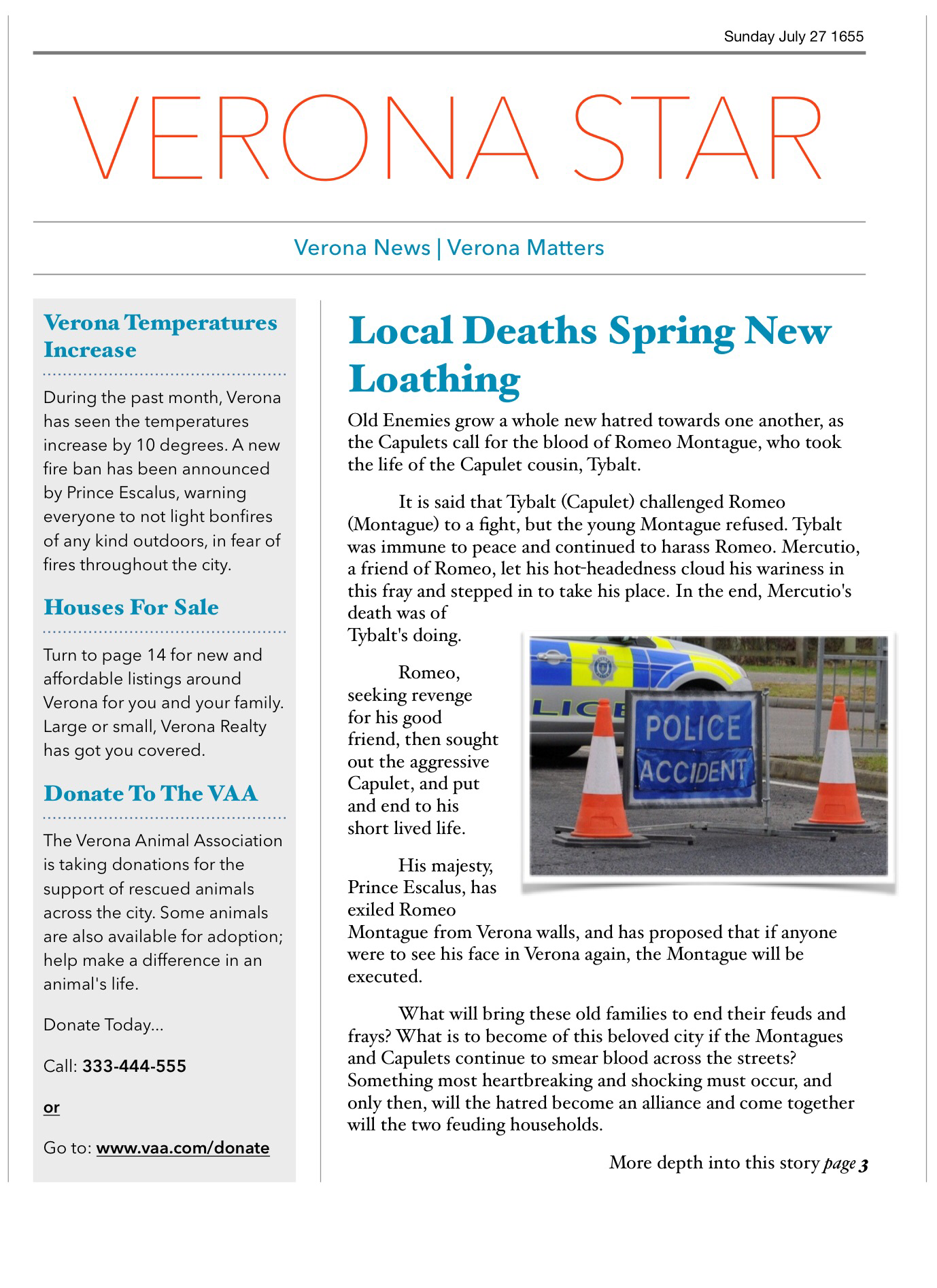During the week, we started to talk about Shakespearean times and Elizabethan theatre.

As we looked through the information, I learned that in this time period, women weren’t allowed to perform on stage; only men. Therefore young boys played the roles of women, and they had to wear layers of female clothing, wigs, and make-up. During the Elizabethan era make-up was lead-based and highly toxic, so the young actors were quite unhealthy with skin problems, and some even died from lead poisoning.

I found this quite interesting, I mean were women not good enough for the theatre? Were they less experienced than men? Women in this time period were brought up being taught that they were inferior to men. That men were the superior beings. So the thought of them up on stage where everyone could see them was preposterous. Women in groups were commonly mistaken as prostitutes, and to see them in a travelling troupe was inappropriate and immoral. Females were so looked down upon that very few attended the theatre, and if one were to attend, they were higher classed women wearing masks to protect their reputations.
This all changed when, in 1942 theatres were closed down, as England was on the brink of a civil war. The Puritan Parliament forbid plays, arguing that theatres distracted and split apart the nation from it’s endeavours to “appease and avert the wrath of God.” It wasn’t until King Charles II came into power, about the year 1660, that women could finally act in the theatre, when they were reopened and in full swing once more.
Personally, I believe that women should have been granted more rights in Elizabethan times. And they sure as heck, should have been able to act on stage. But to counter this, I wonder if women, even if they were granted the right to be in the theatres, would have actually done it. Because I am betting that men probably would not have liked the fact that women were on stage, despite the law. This leads into a whole new topic that I won’t be discussing in this blog post but it’s something to think about for later.
Here are my sources:
Elizabethan Theatre
Why Weren’t Woman Allowed To Act
Elizabethan Women
Elizabethan Theatre History
Elizabethan Globe Theatre
Elizabethan Woman






